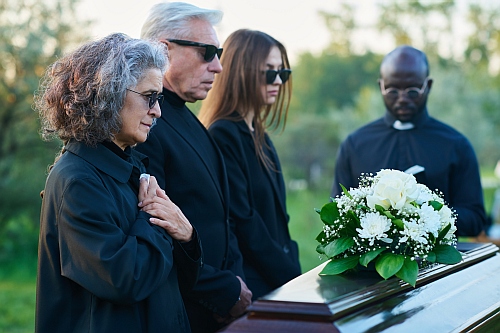Although discussions involving negligence and medical facilities are often focused on medical malpractice, some injuries in the medical setting happen to be disassociated from medical judgment and thus subject to a different standard of review. This distinction is at the heart of the Georgia Court of Appeals’ recent decision in Emory Healthcare, Inc. v. Pardue, a case that required the court to resolve when negligent conduct on the part of medical professionals constitutes medical malpractice rather than ordinary negligence.
The plaintiff in Pardue was a patient at the Wesley Woods inpatient psychiatric unit in Atlanta. She had been admitted to the facility so that the dosage of her previously prescribed medications could be modified in a controlled setting. Wesley Wood is a facility that specializes in geriatric psychiatry, and a fall-risk assessment was taken when the plaintiff was admitted. The risk assessment and other admission documents noted that the plaintiff had “several sensory and cognitive impairments, including cataracts, hearing loss, weakness, an unsteady gait, and a history of dementia.” In light of these issues, the plaintiff was deemed a fall risk, and orders were placed that required she be assisted to the bathroom. On the morning of April 19, 2007, the plaintiff attempted to leave her bed in order to go the restroom, and an alarm sounded notifying staff of her movements. A nurse and a nursing assistant responded and assisted the plaintiff to the restroom, but as they walked to the restroom, the plaintiff urinated on the floor. They finished their journey to the bathroom, where they told the plaintiff to wait while they attended to the urine. While a nurse was cleaning the floor, the plaintiff left the bathroom and then fell on the wet floor outside the bathroom where she had urinated. The nurse who was cleaning the floor testified that she had not seen the plaintiff get off the toilet or leave the bathroom. Following this accident, the plaintiff brought suit against Emory for negligence. The suit eventually went to the jury, which found in the plaintiff’s favor.
One of the defendant’s principal arguments on appeal was that the plaintiff’s negligence claim sounded in medical negligence and not ordinary negligence. Accordingly, the rules associated with medical malpractice liability, including the requirement that a plaintiff provide expert testimony to establish her claim, should apply. The Georgia Court of Appeals, however, found this argument unavailing. The court relied on its prior decision in Brown v. Tift County Hosp. Auth., which held “the distinction between ordinary and professional negligence turns on whether the decision on how to monitor, assist or care for the patient was based on a professional assessment of whether the patient, based on the patient’s medical condition, required assistance of some sort.” 280 Ga. App. 847, 849 (635 SE2d 184) (2006). In other words, when the alleged negligence involves “the exercise of professional skill and judgment to comply with a standard of conduct within the professional’s area of expertise, the action states professional negligence. But where the allegations of negligence do not involve professional skill and judgment, the action states ordinary negligence.” Bardo v. Liss, 273 Ga. App. 103, 104 (1) (614 SE2d 101) (2005).
In this case, the court found that a jury could determine, without the aid of expert testimony, whether the defendant failed to exercise reasonable care when the plaintiff was left unattended. The decision-making that led to the defendant’s fall was not an exercise of medical judgment based on the plaintiff’s particular conditions. Since the decision-making was not linked to medical judgment that would be beyond the ambit of a typical juror, it followed that the claim was not one of medical malpractice but one of ordinary negligence. Thus, the special rules for medical malpractice negligence do not apply.
This case is an important victory for those seriously injured at medical facilities. Given the higher evidentiary burdens associated with successfully proving a medical malpractice claim, many litigants would find it considerably more difficult to get recovery for their injuries if even banal conduct was considered to fall within the boundaries of medical malpractice. Since medical professionals and health care facilities will almost always argue that medical malpractice rules should apply in cases like this, it is imperative that anyone who is considering bringing a personal injury or premises liability suit get the assistance of experienced counsel who understands how to properly characterize the nature of his or her claims. The Atlanta premises liability attorneys at the Law Office of Terrence R. Bethune have ample experience in premises liability litigation, from complaint to jury verdict, and can offer you the guidance you need in your Atlanta premises liability case. For a free consultation to discuss your options, click here or call 1-800-487-8669.
Related Posts:
Slip and Fall in a Georgia Store
Federal Court Denies Summary Judgment in Premises Liability Case Involving Atlanta Metro Area Wal-Mart
Proving Causation in Georgia Premises Liability Cases
Subject Related Articles

What to Do After a Hit-and-Run Accident
So you’ve just been in a hit-and-run accident. Your first thought is probably to chase down the other driver, but that may not be the
April 19, 2024

Difference Between a Wrongful Death Claim and an Estate Claim
So you’ve recently lost a loved one, and you’re not sure of the differences between a wrongful death claim and an estate claim. Don’t worry,
March 22, 2024

Elderly Driver Accidents in Macon: What to Do
Macon, Georgia, like many communities across the United States, faces a growing population of senior citizens. While this demographic shift brings undeniable benefits, it also
February 22, 2024





